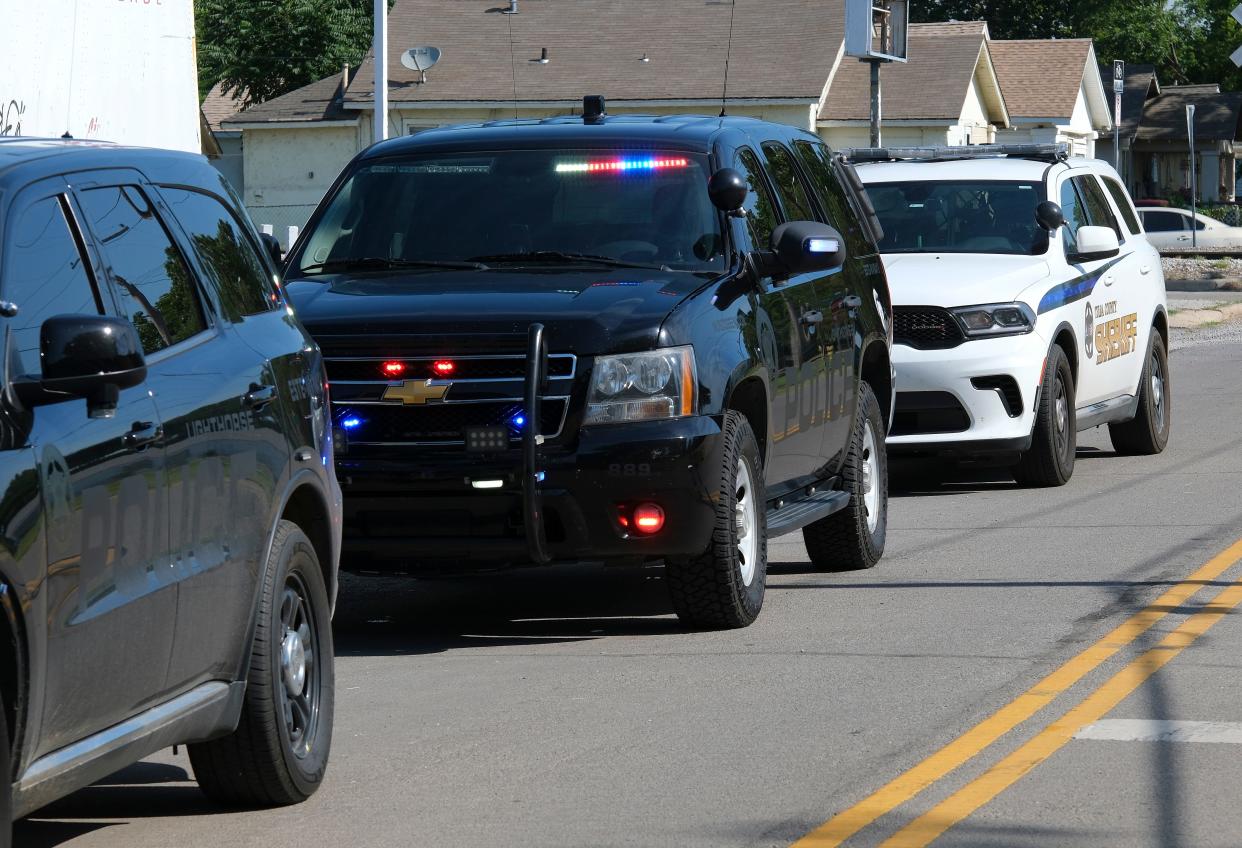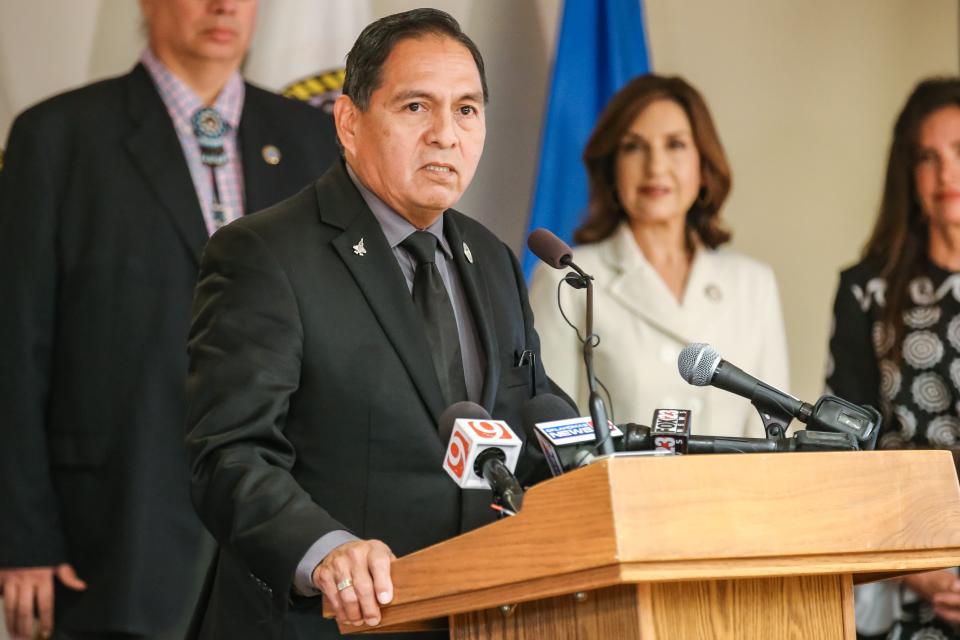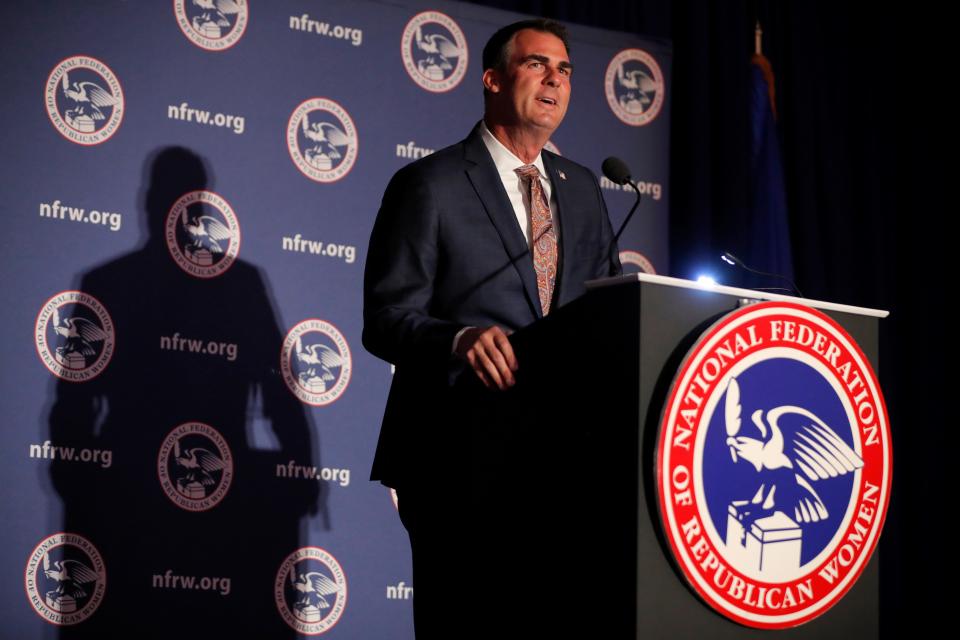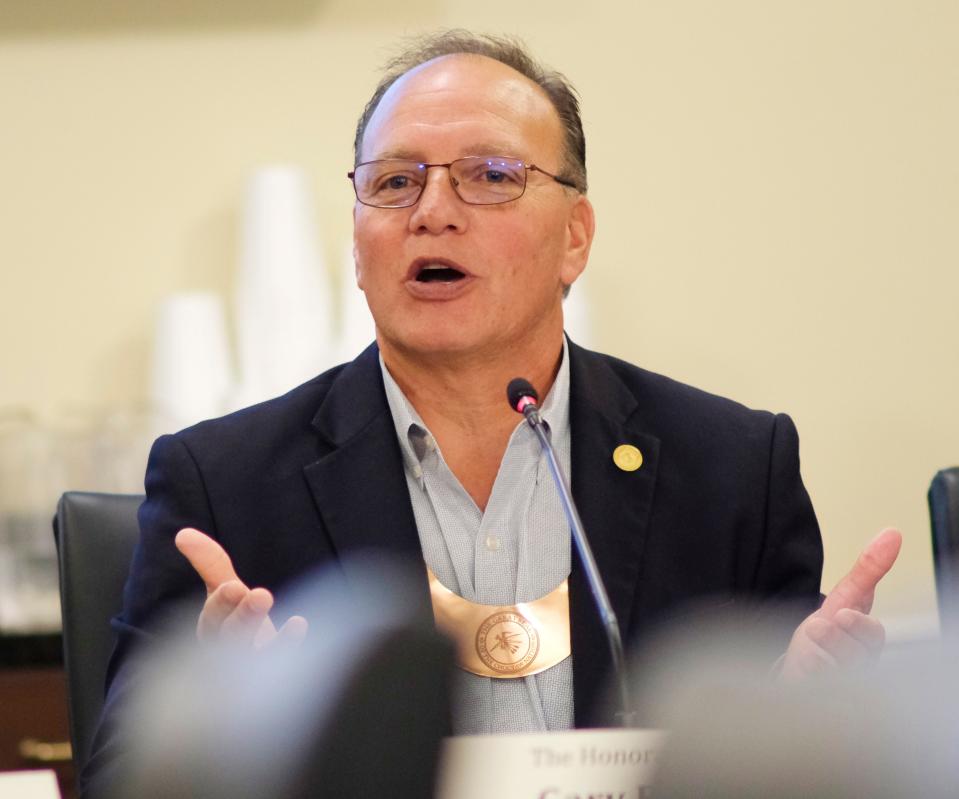Tribes keep opting out of Oklahoma governor's reservation task force, calling it flawed

- Oops!Something went wrong.Please try again later.
The boycott of Gov. Kevin Stitt’s new task force to fix “broken” criminal justice systems on tribal reservations expanded Monday after two more prominent tribal leaders announced they wanted no part in the group.
Gary Batton, the chief of the Choctaw Nation, and David Hill, the principal chief of the Muscogee Nation, said the task force appeared to be based on the false belief that state and tribal police officers aren’t working together on the ground. They joined Chuck Hoskin Jr., the principal chief of the Cherokee Nation, in declining to participate.
The leaders represent the three largest tribal nations in Oklahoma, which count a total of nearly 800,000 citizens. Their decisions to shun the governor’s task force signal how far apart Stitt remains from influential tribal leaders on key criminal justice issues. The developments also underscore how little relations have improved in the one year since the governor pledged a “new day” working with tribes.
“We cannot participate in any endeavor aimed at weakening tribal nations, and, by extension, harming public safety,” Hill said in a statement explaining why his east-central Oklahoma tribe would not join the task force.

Chickasaw Nation also criticizes Gov. Kevin Stitt's task force
The task force also drew criticism from Gov. Bill Anoatubby of the Chickasaw Nation. He did not reject the group altogether but said Chickasaw leaders “would be reluctant to ask someone to participate.”
“The goal seems to be the dismantling of a new system that is quite successful within the Chickasaw Nation,” Anoatubby said in a statement.
More:Oklahoma agency pulls authority from tribal police in a move drawing safety concerns
A spokesperson for the governor did not respond to questions about the tribal leaders’ decisions, but said Friday that Stitt still planned to include voices from large and small tribes on the task force.
It is becoming increasingly unclear who those tribal representatives might be.
Hill and Hoskin also have accused Stitt of trying to create confusion ahead of the task force’s first meeting by pressuring a state agency to suspend its working agreement with tribal police. The Grand River Dam Authority notified both tribes Friday that it would no longer allow tribal officers to act on its behalf.
The governor has not confirmed or denied their claim that he directed the move. A spokesperson said Stitt had asked “for consistency from all state law enforcement” in light of a December dustup between Muscogee Nation police and Okmulgee County jail employees.
Why did Gov. Kevin Stitt create the task force?
Stitt created the task force in response to the dispute, ordering the group to examine criminal justice issues on the reservations and recommend fixes that would eliminate confusion among law enforcement agencies on the ground.

No tribal leader has been guaranteed a seat on the 13-person task force. But Stitt did reserve two spots for representatives of tribal nations.
Batton, Hill or Hoskin could have potentially filled the slot reserved for a representative of the Five Tribes — the Cherokee, Chickasaw, Choctaw, Muscogee and Seminole nations. All have reservations in the eastern half of the state that regained legal standing as a result of McGirt v. Oklahoma, a landmark 2020 Supreme Court decision.
The state can’t prosecute Native Americans accused of committing crimes on reservation lands; that power now rests with tribal and federal courts. The governor has openly worried about losing other state powers, particularly the ability to tax tribal citizens who live and work on reservations.
Stitt ordered the task force to analyze the “havoc” caused by the ruling, which Batton said doesn’t exist.
He said the Choctaw Nation, in the southeast corner of the state, has signed on to 77 operating agreements with other state and local agencies. The agreements allow police officers to enforce state and tribal laws simultaneously.

“We remain open to working jointly and hope Gov. Stitt will re-evaluate the task force participants and his negative narrative about the McGirt ruling,” Batton said in a statement. “But due to the current parameters of the proposed task force, I will not participate as a possible representative.”
In his executive order, Stitt called for standardized working agreements between state and tribal police agencies, with sections that would cover “liability, immunity waivers and fee apportionment.” The latter issue has been under the spotlight in Tulsa, where city officials have refused to heed a federal ruling that bans the city court from prosecuting and fining Native American drivers for traffic offenses.
The Muscogee Nation contends it should be receiving the traffic cases instead and filed a federal lawsuit against Tulsa in November. The city asked the judge to dismiss the lawsuit in December.
Editor's note: This was a developing story and has been updated.
Molly Young covers Indigenous affairs. Reach her at mollyyoung@gannett.com or 405-347-3534.
This article originally appeared on Oklahoman: Choctaw, Muscogee nations opt out of Oklahoma Gov. Stitt task force

